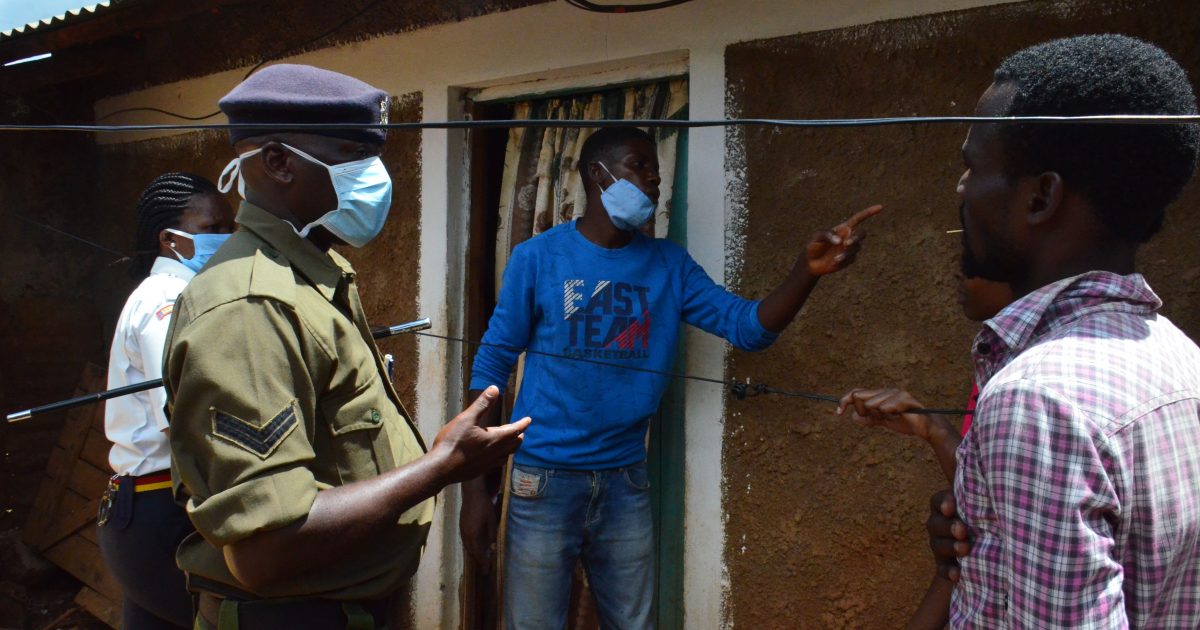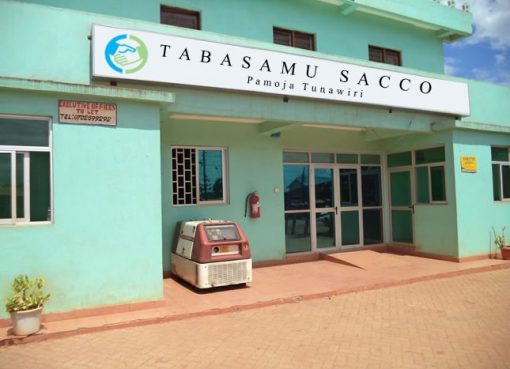When police responded to an incident at Mwakingali village on the outskirts of Voi town on Friday, their orders were simple: apprehend a heartless landlord who had locked an expectant mother and her 3-year-old daughter inside their rental house for failing to pay two months’ rent arrears totaling Sh4,000.
When the law enforcement officers arrived, they found the unfeeling landlord seated on a wooden stool under a shade by a wall of a mud-walled house.
“This is not what we expected,” admitted an officer at Voi Police Station where the case was reported.
Like most people, the police had the universal perception we have of a typical landlord: rich, smug and well-dressed individual with multiple bank accounts and cruising around in expensive cars. Such perceptions are reinforced by heart-warming reports of landlords waiving rent for tenants for several months to cushion them a little against the devastating effects of Covid-19.
The reality was however different. The ‘brutal’ Mwakingali landlord was a partially paralysed poverty-ridden old man struggling with a severe speech impairment after suffering a stroke some years back. Shaken by the presence of police in his tiny compound, the man laid bare his woes. In obvious pain, he struggled to explain in a stutter his predicament: this tenant had not paid rent since January and was only giving multiple false pledges to pay ‘soon’.
“He has not even paid a hundred shilling for my food. I need money to buy food and medication otherwise I will die,” said the landlord only identified as Mr. Mwandoe.
Such conflicts, borne of desperation between a tenant and his landlord lay bare the dilemma and agony confronting pauper landlords in slums across the country. Landlords with low-cost units in the heart of slum settlements are not wealthy. Most do not have bank accounts leave alone cars. They neither have expensive suits nor designer shoes. The likes of Mr Mwandoe embody a class of poor urban landlords who live from hand-to-mouth. Most sorely rely on rent paid monthly by their tenants to survive.

At best of times, the money at the end of the month rarely comes on time because of unforeseen circumstances that forces the tenant to default on payment or fail to pay altogether. Tenants in such places are low-income earners ranging from juakali artisans, hawkers, conductors, bodaboda riders to hotel workers amongst other such workers with no regular source of income.
With the sudden economic shutdown following the Covid-19 outbreak in the country which has seen millions of jobs especially in the informal sector disappear, slum landlords’ dire situation has even become more precarious.
Mr. Mwandoe’s two mud-walled, flat-roofed dwelling units are his only source of livelihood. When his tenants fail to pay, his last-born daughter steps in and brings him food to keep him going.
In Taita-Taveta, tenants like him are scattered all over the informal settlement areas including Maweni, Sofia, Mabomani, Tanzania, Kariokor, Peleleza and Soko ya Zamani.
The situation has been made worse by the government’s plea to landlords to be ‘understanding’ and patient with struggling tenants during a time when Coronavirus has disrupted the economy and robbed people off their livelihoods.
Mr. Peter Kwaze, chair of community policing in Voi sub-county, says most tenants have deliberately misinterpreted the government plea as an order to the landlords not to ask them for rent. He added that even tenants with ability to pay were taking advantage of Covid-19 and declining to remit their rent.
“There is no directive that tenants should not pay their landlords. The government made a request. But in typical Kenyan opportunism, even the financially well off tenants are claiming government said they should not pay. What is the fate of landlords who depend on this rent to survive if we all refuse to pay?” he posed.
In Mr. Mwandoe’s case, he says the tenant had not paid since January this year. Frustrated by the false promises, his daughter snapped and locked the expectant woman and her daughter in their house to force the husband to pay ‘even if it’s a hundred shillings.’
Jackson Juma, whose wife and daughter were locked in their room, says he lost his job in January and has been hunting for another since. He alleges he can barely fend for his family let alone find money to offset his rent arrears.
“I haven’t refused to pay but I have no money. I can’t move my wife to another house in her condition. I need more time,” pleaded the young panel-beater.
As such dilemma emerges, other landlords admit they are having it as rough as everyone else; perhaps their plight is worse. Ms. Matilda Were, a rental-house owner at Maweni, says landlords are finding themselves in a very tight spot. She said that while the economy was hemorrhaging and most tenants were genuinely unable to pay their rents, those with ability to pay were unwilling to do so due to uncertainty on how long the current economic chill will last.
With her husband and six children at home after schools were closed, life at her house has progressively become a nightmare.
“Everyone is now at home yet no money is coming in. We are skipping meals for we can’t afford eating full time. We all stay indoors and I only go to collect two hundred shillings after every two days from one of my tenants. The rest are not paying a single shilling,” she said.
Amongst her tenants are two young men sharing a single room. The youngsters are from Kilifi County and worked as mechanics in a local garage before they were laid off. She says she stopped asking them for rent and instead gives them food when she can spare.
“They have no food, no job and can’t go home to Kilifi County because of the lockdown. I need money to feed my family but I can’t even think of asking them for a coin,” she said.
In a tragic irony, landlords are overlooked in government programmes to distribute food and other forms of aid to the vulnerable. Ms. Were says people targeted by such programmes are those who are deemed poor but argues that landlords who are not receiving any rent money from their tenants and have heeded government’s call not to evict them should qualify for some form of relief.
“The rental houses are our lifelines. If we don’t get any rent yet we have obeyed the government request not to evict our tenants, why can’t we get assisted too?” she asked.
In areas where your worth is judged by what you have in your house, possessing a radio, an antic Great-wall TV or even a plastic carpet on the floor of your living room will easily get you labelled ‘a rich man’ and miss out on the government’s aid package.
Ms. Ann Wambui, a waitress who lost her job, reports her house in Maweni was locked for failing to pay Sh4, 000 rent for March and April. Surprisingly, she says she understands her landlord’s predicament. Having lost her job, she admits life has never been this hard. Her landlord called and explained to her the room had to be locked.
“If I were her, I would do the same. This is the only place she gets any income,” says the tenant who has since moved into a friend’s house with her two-year-old daughter.
In law, it is illegal for a landlord to lock their tenants’ houses without sufficient notice. However in slum setups where landlord interacts with his tenants daily, notices for vacating a house or rent hike are issued verbally. Whenever a tenancy dispute arises, they are never handled by the government’s rent tribunal authority; a few neighbours arbitrating will suffice.
With the continued economic challenges, disputes between tenants and their landlords are set to rise presenting a new headache for a government grappling with tackling Coronavirus.
County Police Commander Said Kiprotich admits the complexity of dealing with such cases which emanate from survival needs for both the landlord and tenant. He says there is a need for landlords and tenants to enter into a workable agreements that will see them accommodate each other until the situation stabilizes.
“There is need for locally-sourced alternative dispute resolution methods where the tenants and the landlords can agree on what to pay and when,” he said.
Chiefs, their assistants, village and opinion leaders in the village are being hailed as the new frontiers of handling such disputes to avoid them escalating into full-blown cases that will involve prosecution by the police and judiciary.
By Wagema Mwangi





